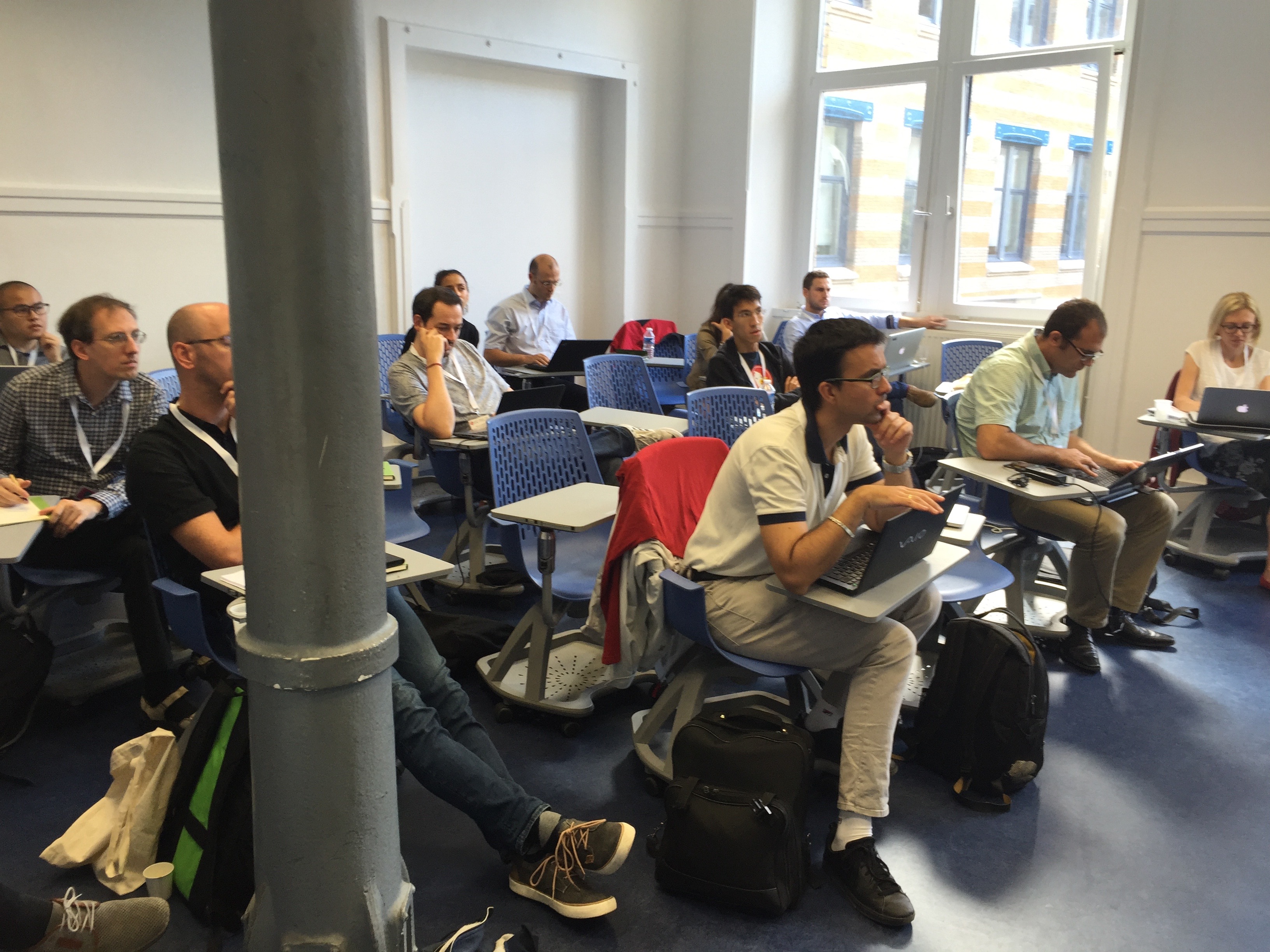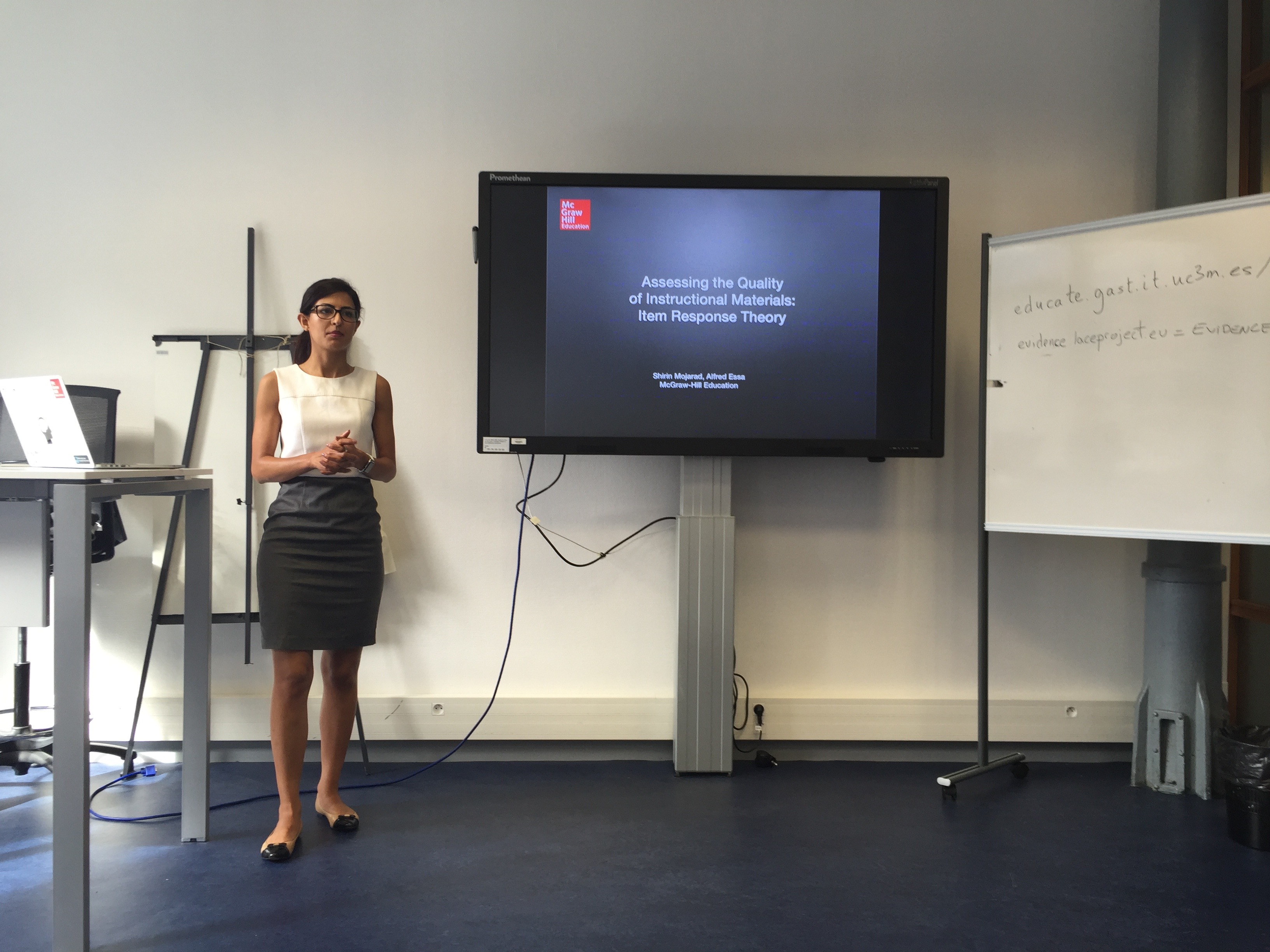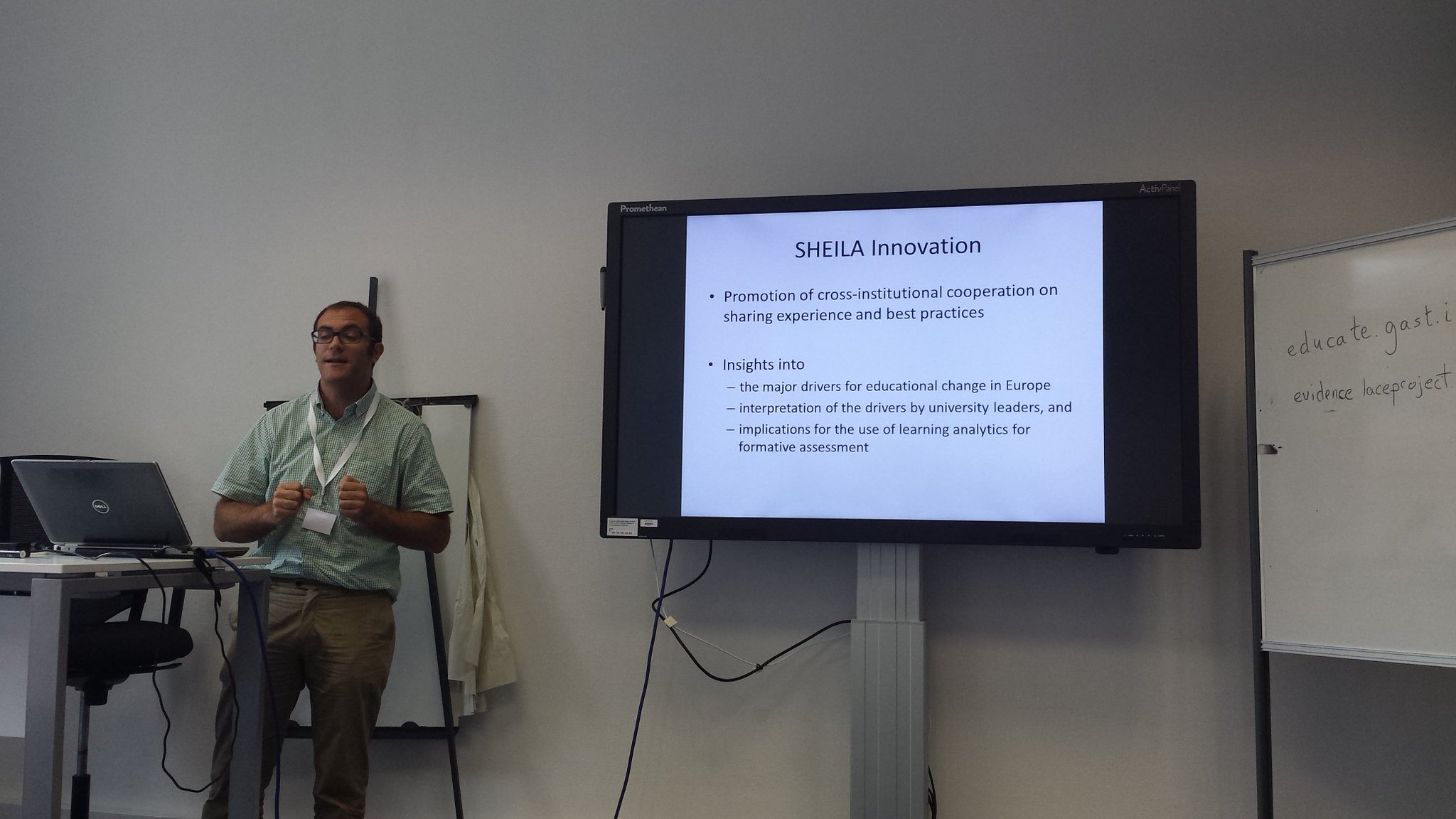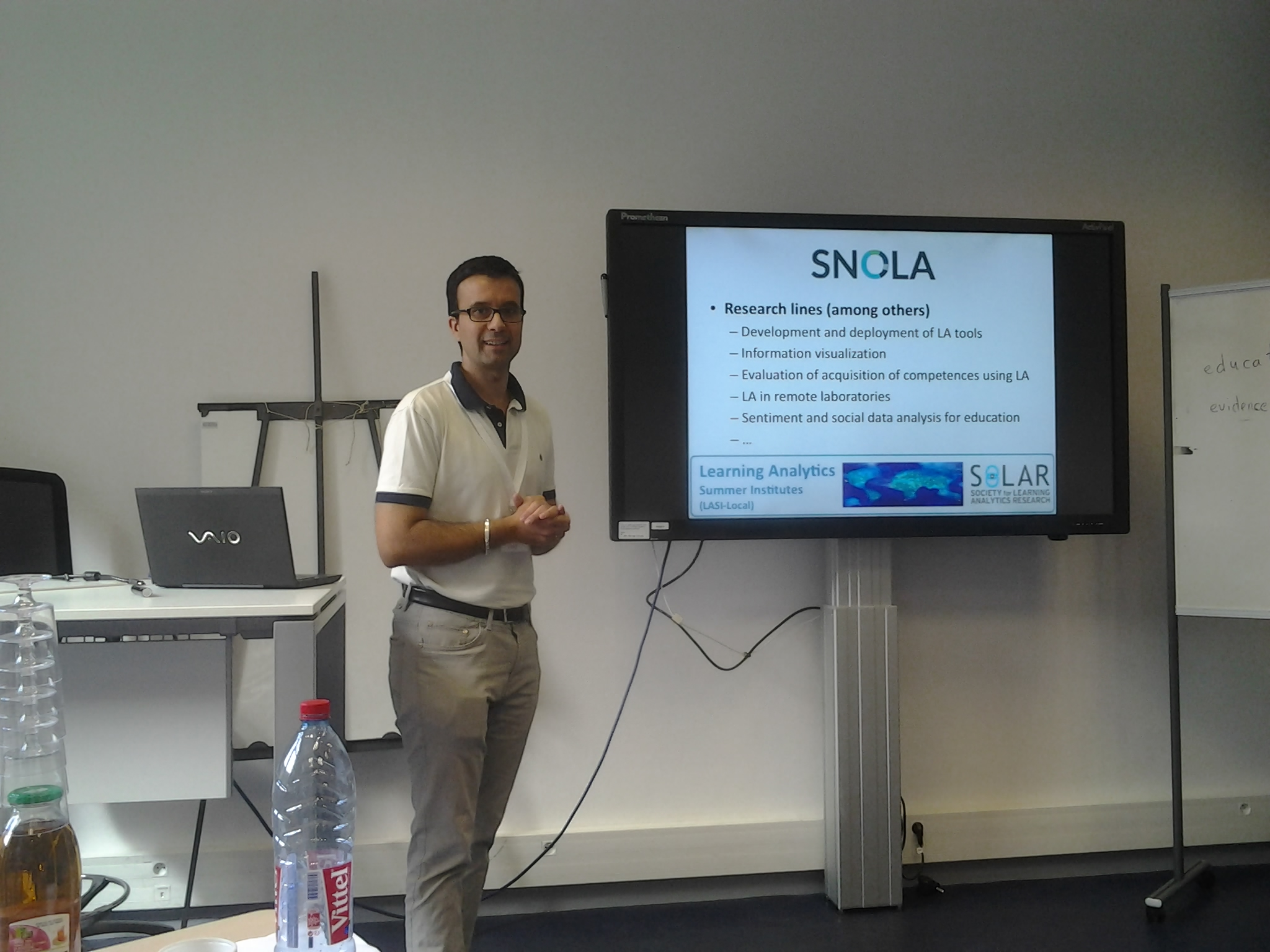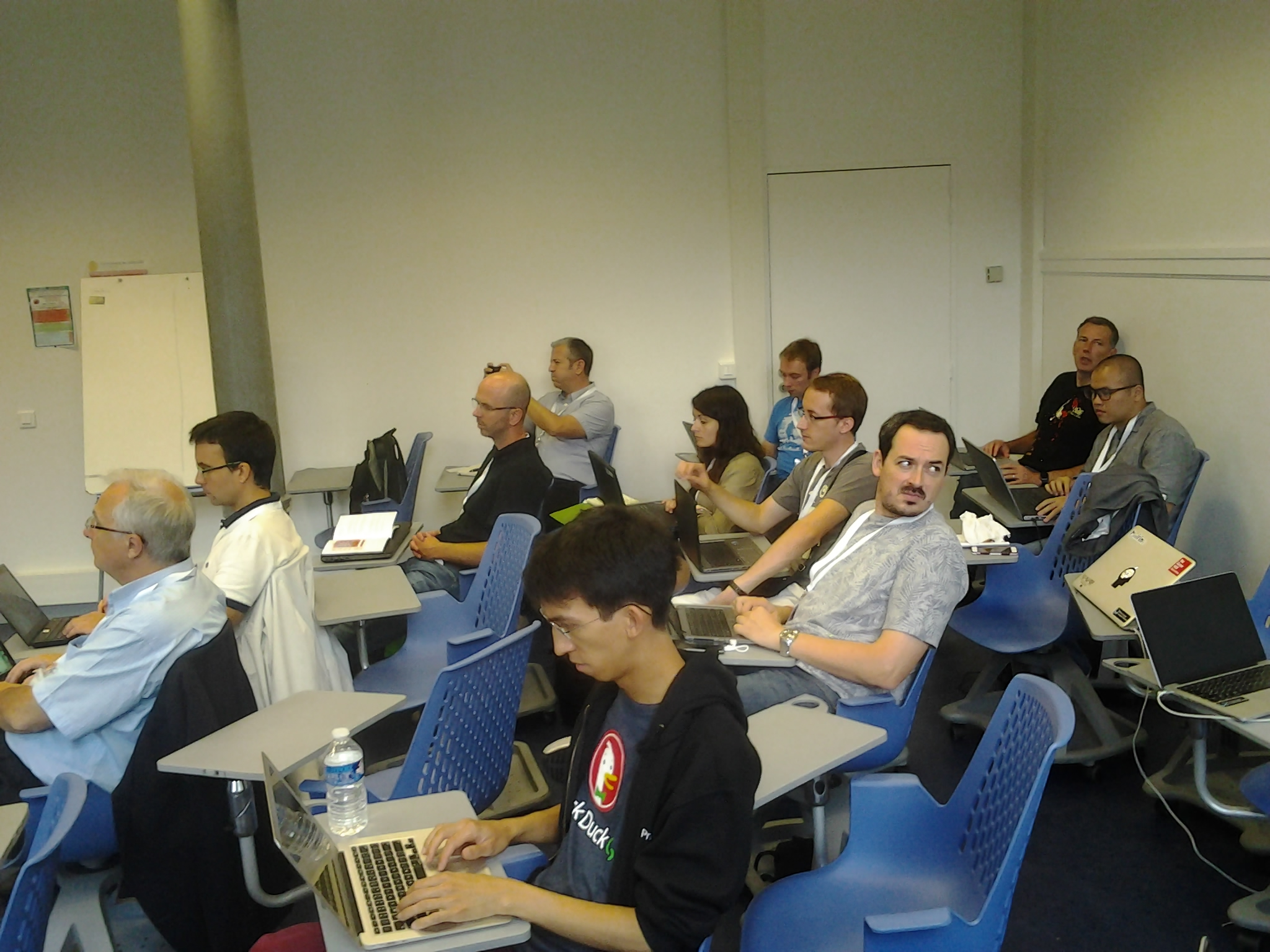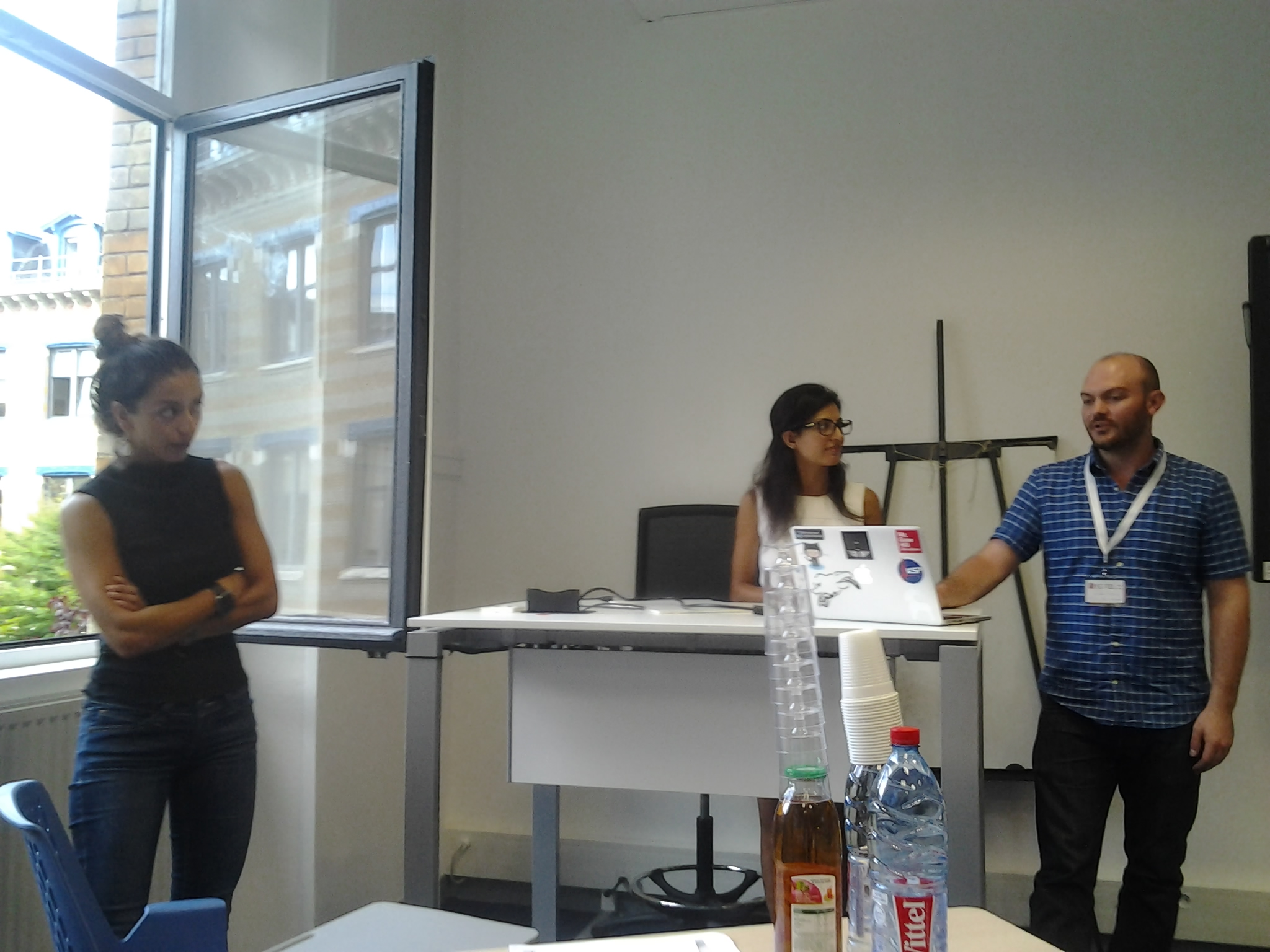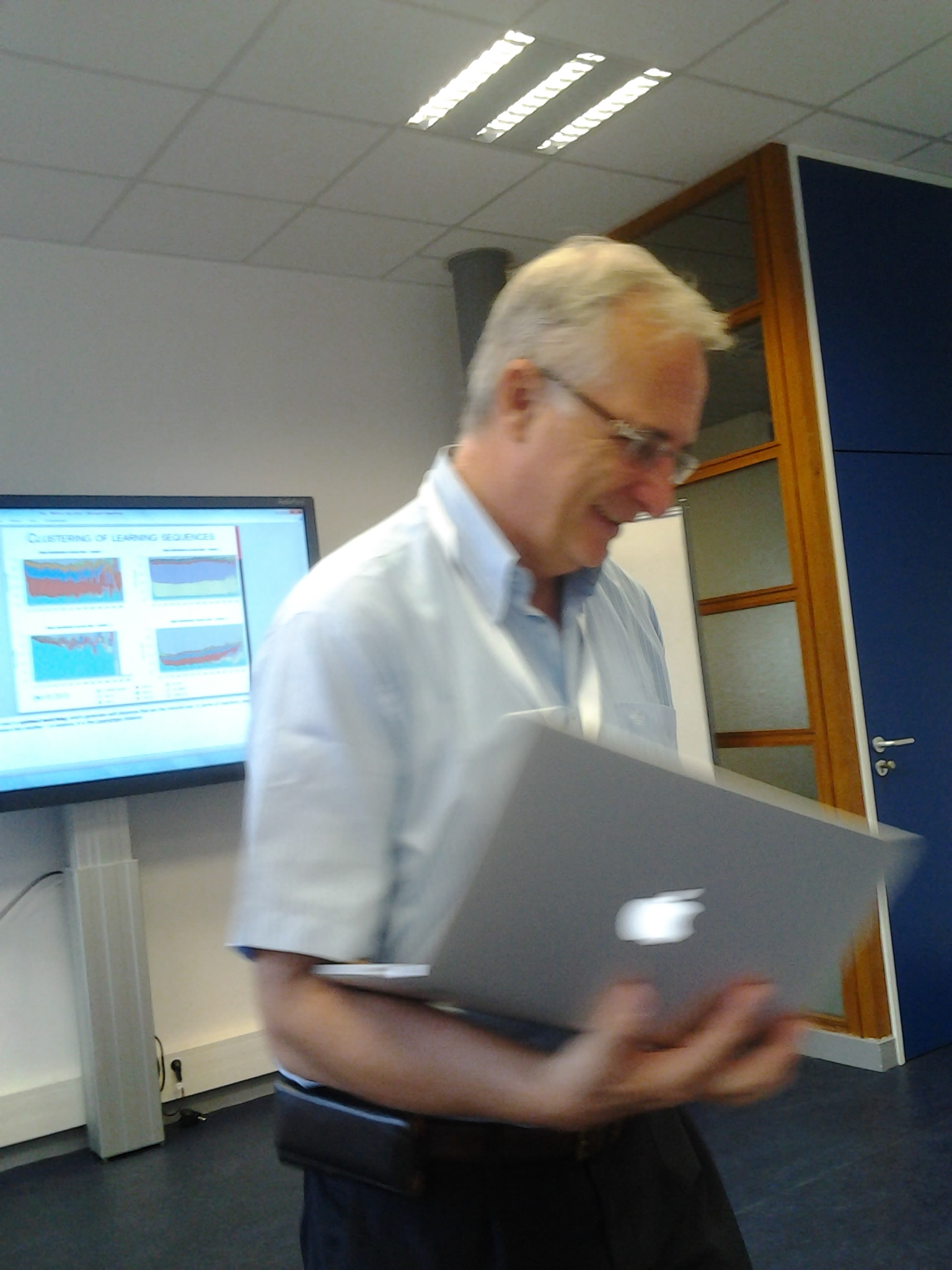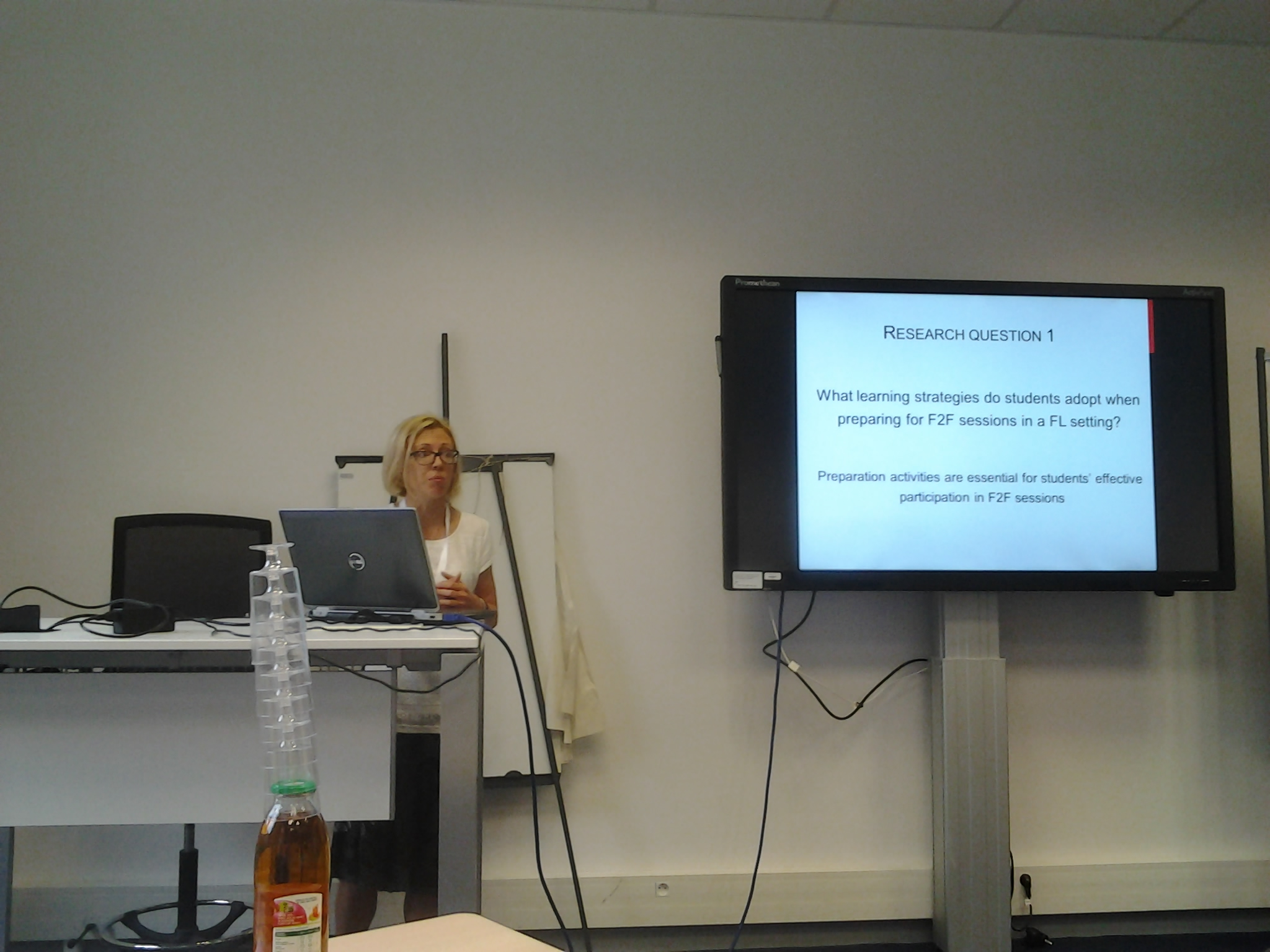Objectives
The first edition of the WAPLA workshop took place in Toledo, Spain at EC-TEL 2015. The web page of WAPLA 2015 is available at http://educate.gast.it.uc3m.es/wapla2015 where several videos of the workshop are available. Due to the success of this event, we would like to propose a second workshop on this topic at this year’s EC-TEL conference. The WAPLA workshop aims at analyzing with an applied and practical perspective different issues and challenges related to learning analytics. Learning analytics can be broadly defined as the methods and techniques to reach conclusions about the learning process in order to improve it. First of all, there is a need of collecting data since you cannot improve what you do not monitor. Nowadays, there are proper technical tools to collect and retrieve all the interactions of the users with the different learning resources and activities. The retrieve of these data enables its analysis and the application of learning analytics for improving the learning process. Scenarios such as MOOCs (Massive Open Online Courses) provides a good case study as it makes even more necessary the application of learning analytics techniques because there is a need of tools for teachers to easily monitor the learning process and students for receiving automatic feedback and awareness. The correct practical application of learning analytics can bring a lot of advantages. Many issues should be considered for a successful application of learning analytics in courses and in the organizations as a whole.
Workshop Format
The workshop will be composed of keynote presentations, project presentations, interactive discussions, discussion panels, hands-on tutorials and oral presentations:
- Oral presentation of selected papers. The Programme Committee members will select the contributions to be presented. Full papers will have an allocated time of 20 min. for presentation, while short papers will have 12 min. for presentation. At least 1/3 of the time should include questions from other workshop participants.
- Interactive discussion about current challenges for the practical application of learning analytics.
- Interactive discussion about current software tools for learning analytics.
Call for Papers
- Full papers. 8-10 pages.
- Short papers. 2-4 pages.
Submissions must follow LNCS format. The manuscripts will be evaluated by at least two members of the Program Committee. All accepted papers (full and short) will be invited to make an oral presentation in the workshop. Accepted papers will be published in CEUR workshop proceedings (http://ceur-ws.org/) (pending of confirmation). The manuscripts must be submitted through easy chair: https://easychair.org/conferences/?conf=wapla2016
Workshop Topics
The topics of the workshop include but are not limited to the following:
- Experiences of application of learning analytics
- Combination of existing software tools of learning analytics
- Deployment of learning analytics in an institution
- Evaluation results based on learning analytics
- Application of adaptive learning based on learning analytics
- Actuator decisions based on learning analytics
- Design and implementation of useful detectors to infer intelligent infor-
- mation from low level data, e.g. emotion detection, effectiveness, user
- profiles or user behaviors
- Application of personalization and adaptive learning based on learning analytics
- Application of recommenders
- Ethical issues and data protection
- Useful conclusions for the learning process based on techniques such as
- Visual analytics
- Predictive modelling
- Clustering
- Relational mining
Important Dates
- 30 April: Call for Workshop Contributions open
- 20 June: Deadline for paper submission
- 8 July: Notification of acceptance
- 20 July: Camera ready versions of papers due
- Workshop: 16 September 2016
Organizers
Workshop Chairs
- Carlos Delgado Kloos, Universidad Carlos III de Madrid, Spain
- Alfred Essa, McGraw-Hill Education, USA
- Hendrik Drachsler, Open University of the Netherlands
- Pedro J. Muñoz-Merino, Universidad Carlos III de Madrid, Spain
Programme Committee
- Ryan Baker, University of Columbia, USA
- Carlos Delgado Kloos,Universidad Carlos III de Madrid, ES
- Hendrik Drachsler, OUNL, NL
- Alfred Essa, McGraw-Hill Education, USA
- Baltasar Fernández-Manjón, Universidad Complutense de Madrid, ES
- Mariluz Guenaga, Universidad de Deusto, ES
- Seiji Isotain, University of Sao Paulo, BR
- Martin Llamas, Universidad de Vigo, ES
- Julià Minguillón, UOC, ES
- Pedro J. Muñoz-Merino, Universidad Carlos III de Madrid, ES
- Abelardo Pardo, University of Sidney, AU
- Salvador Ros, UNED, ES
- Teresa Sancho, Universitat Oberta de Catalunya,ES
- Anne Tervakari,Tampere University of Technology, FI
- Fridolin Wild, Oxford Brookes University, UK
- Simon Buckingham-Shum, University of Technology Sydney, AU
- Rebecca Fergusson, Open University, UK
- Dragan Gasevic, University of Edinburgh, UK
- Ángel Hernández-García, Universidad Politécnica de Madrid, ES
- Sharon Hsiao, University of Columbia, USA
- Jelena Jovanovic, U Belgrade, RS
- Tobias Ley, Tallinn University of Technology, EE
- Peter van Rossmalen, Open Universiteit, NL
- Kairit Tammets, Tallinn University of Technology, EE
- Katrien Verbert, KU Leuven, BE
- Davinia Hernández-Leo, UPF, ES
- Juan Cruz-Benito, USAL, ES
- Mikel Larrañaga Olagaray, UPV/EHU, ES
- Manuel Caeiro Rodríguez, Universidad de Vigo, ES
- Miguel Ángel Conde, Universidad de León, ES
Program
9:00-9:05. Opening and brief presentation
![]() Carlos Delgado Kloos (Universidad Carlos III de Madrid)
Carlos Delgado Kloos (Universidad Carlos III de Madrid)
9:05-9:50. Keynote Talk:
Jelena Jovanovic (University of Belgrade)
![]() «Mining trace data to reveal students’ learning strategies and strategy-based student profiles»
«Mining trace data to reveal students’ learning strategies and strategy-based student profiles»
9:50-11:00. Hands-on Tutorial:
Ani Aghababyan, Lalitha Agnihotric, Alfred Essa, Nicholas Lewkow, Shirin Mojarad (McGraw-Hill Education)
![]() «Educational Data Mining with Python and Apache Spark: A Hands-on Tutorial»
«Educational Data Mining with Python and Apache Spark: A Hands-on Tutorial»
11:30-12:00. Project presentations
12:00-12:20. Selected Talks:
Alfred Essa (McGraw-Hill Education)
![]() «A Technical Primer on Item Response Theory»
«A Technical Primer on Item Response Theory»
12:20-12:40. Selected Talks:
Ruth González Novillo, Pedro J. Muñoz-Merino, Carlos Delgado Kloos (Universidad Carlos III de Madrid)
![]() «Design of Adaptive Systems for Computer-based Learning»
«Design of Adaptive Systems for Computer-based Learning»
12:40-13:00. Selected Talks:
Antonio Robles-Gómez, Salvador Ros, Antonio Martínez-Gámez, Roberto Hernández, Agustín C. Caminero, Llanos Tobarra, Rafael Pastor and Jesús Cano (UNED)
![]()
![]() «Defining a Novel Ontology for Educational Counselling based on Professional Indicators»
«Defining a Novel Ontology for Educational Counselling based on Professional Indicators»


